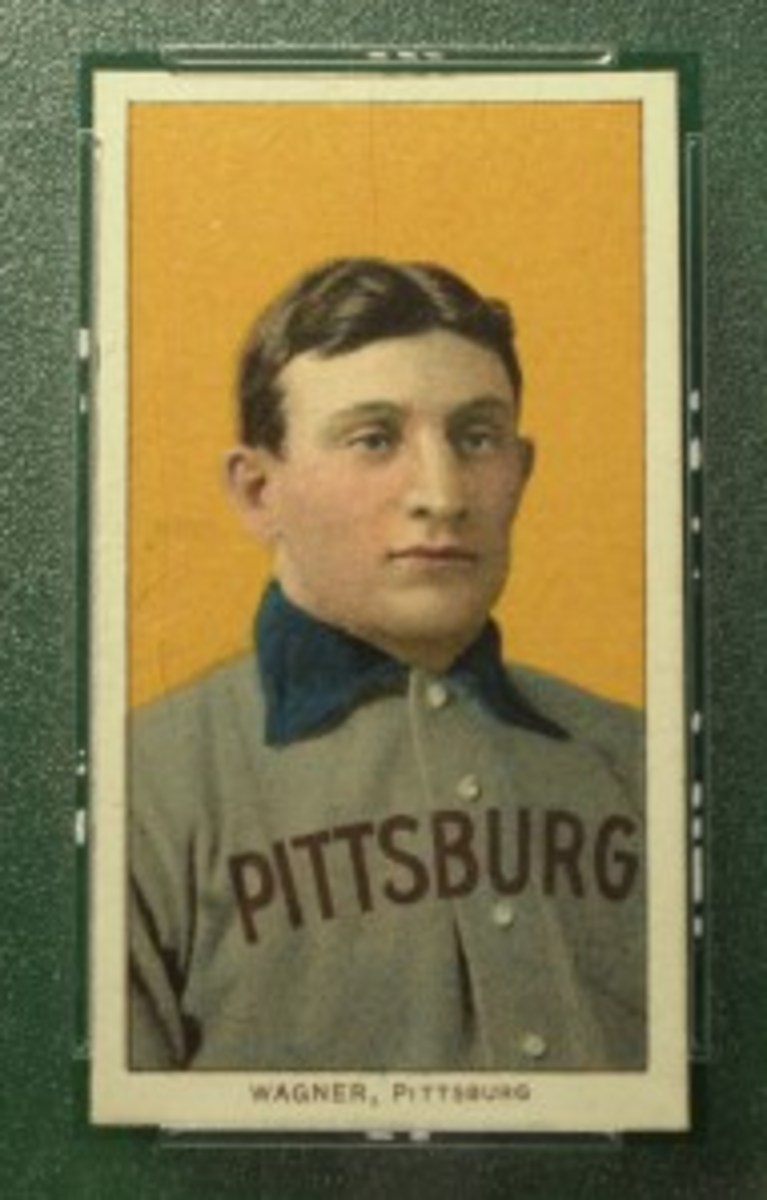Wayne Gretzky, Baseball Hall of Fame among owners duped by altered Honus Wagner card

A Honus Wagner card that sold for $2.7 million is at the center of a sports memorabilia scam. (Chris Hondros/Getty Images)

The Baseball Hall of Fame once had on display a Honus Wagner card purchased by Wayne Gretzky for nearly half a million dollars and later sold for several million dollars to Arizona Diamondbacks owner Ken Kendrick.
It may no longer be considered the most expensive card in the world.
The memorabilia auction house that purchased the card for $25,000 at a Long Island collectibles shop in 1985 is now being indicted by a federal grand jury on fraud charges, according to a report Wednesday afternoon from The New York Daily News.
Daily News reporters Teri Thompson and Michael O'Keeffe confirmed that Bill Mastro, the founder of Illinois-based Mastro Auctions "routinely defrauded customers, rigged auctions and inflated prices paid by unwitting bidders."
The U.S. Attorney's office alleges that Mastro altered the T206 Honus Wagner card to increase its value and prevent it from looking like it had aged.
The card is widely known as the "Gretzky T206 Wagner" because the Hall of Fame hockey player purchased the card with former Los Angeles Kings owner Bruce McNall for $451,000 in 1991. It went on to become the first card ever to fetch $1 million, selling between two private collectors for $1.27 million in 2000.
But its altered state to increase bidding will ultimately drive the price down:
The card [w]hich had been cut from a printer's sheet, was further trimmed by Mastro to make it appear as if it has been carefully preserved for decades after it was removed from a pack of cigarettes in 1909.
Among the many items that Mastro is believed to have doctored is "purported hair of Elvis Presley; and a purported 1869 Cincinnati Red Stockings trophy baseball."
According to the report, Gary S. Shapiro, Acting United States Attorney for the Northern District of Illinois confirmed that Mastro and several of his associates will be prosecuted:
"Consumers have a right to be protected from deceptive and dishonest sales practices, and we will prosecute those who fraudulently rig auctions at the expense of bidders as the indictment alleges in this case."
